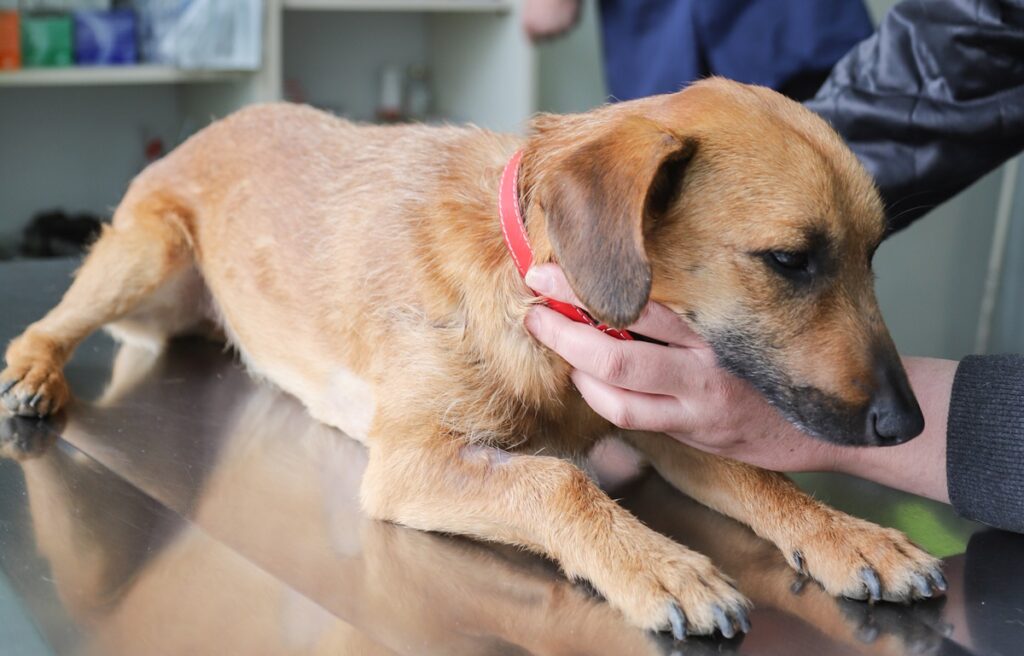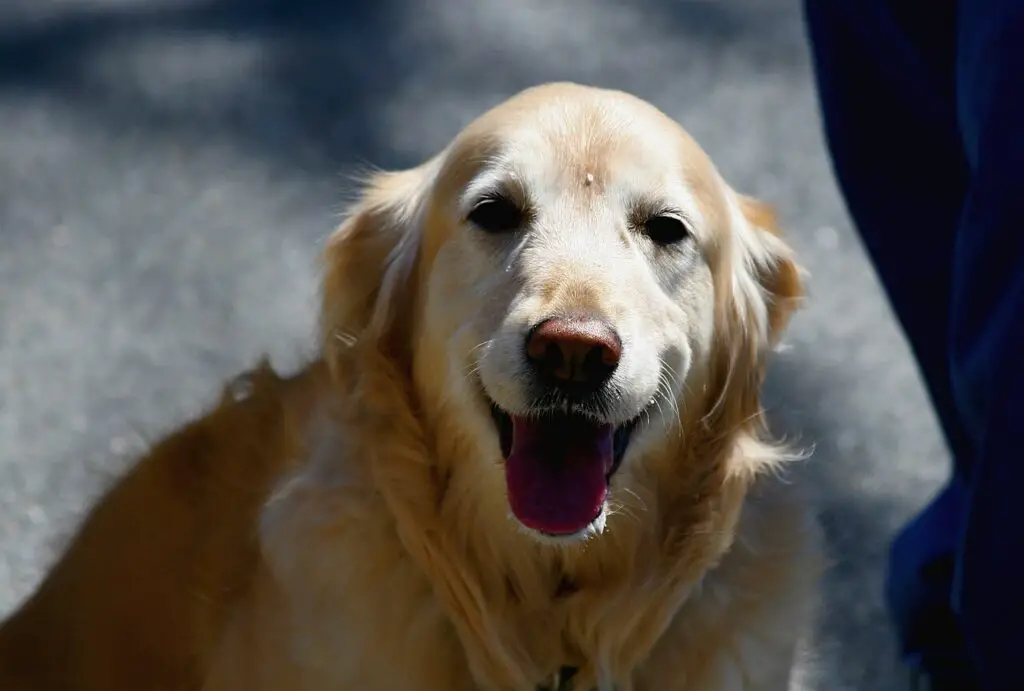Understanding the duration of a rabies vaccine in dogs is crucial for every pet owner.
In this guide, we delve into the specifics of how long these vaccines last, why they are essential, and what factors can influence their effectiveness.
Get informed about your dog’s health and learn how to ensure they are protected from this deadly disease.
- Understanding Dog Rabies Vaccines
- How Long Do Dogs Rabies Vaccines Last
- Does Rabies Vaccine Last Longer Than 3 Years in Dogs?
- How Often Should My Dog Get a Rabies Vaccine?
- Dog Rabies Vaccine Schedule
- What Does a Rabies Vaccination Protect My Pet Against?
- Can The Rabies Vaccine Cause Any Side Effects in My Pet?
- How Much Does a Dog Rabies Vaccine Cost?
- Which Is Safer, the One-Year or Three-Year Rabies Dog Vaccine?
- FAQs
- Q: When should I vaccinate my dog against rabies?
- Q: Do dogs need a rabies booster?
- Q: What are the symptoms of rabies in dogs?
- Q: Can dogs get rabies even if they are vaccinated?
- Q: Is there a specific rabies vaccine for dogs?
- Q: What is a rabies titer?
- Q: Are there any side effects of the rabies vaccine for dogs?
- Q: What is the recommended vaccination schedule for dogs?
- Q: Is the rabies vaccine required by law?
- In Conclusion
Key Takeaway
- Dog rabies vaccines are crucial for protecting dogs against the deadly rabies virus by stimulating the immune system to produce antibodies that can neutralize the virus.
- The duration of protection provided by dog rabies vaccines can vary, but most vaccines are effective for at least one to three years.
- The dog rabies vaccine schedule typically involves an initial vaccination around 12-16 weeks of age, followed by a booster at one year, and then subsequent boosters every 1-3 years depending on the vaccine used and local regulations.
Understanding Dog Rabies Vaccines

Understanding dog rabies vaccines is crucial in keeping our furry friends safe and preventing the spread of this deadly disease.
Rabies is a viral infection that affects the nervous system of mammals, including dogs. It is transmitted through the saliva of an infected animal, usually through a bite.
Vaccinating dogs against rabies not only protects them from getting the disease but also prevents them from transmitting it to humans or other animals.
Dog rabies vaccines work by stimulating the dog’s immune system to produce protective antibodies against the rabies virus.
These vaccines contain a weakened or inactivated form of the virus, which is safe for the dog but still capable of triggering an immune response.
When a dog is vaccinated, its immune system recognizes the viral protein and produces antibodies specific to rabies.
These antibodies remain in the dog’s system, ready to defend against the virus if the dog ever comes into contact with it in the future.
How Long Do Dogs Rabies Vaccines Last

Rabies vaccines in dogs provide immunity for up to three years, but this can vary based on factors such as the specific vaccine used, the dog’s overall health, age, breed, and the strain of the rabies virus they may encounter.
Puppies receive their first rabies vaccination between 12-16 weeks of age and a booster one year later.
After this initial period, the frequency of vaccinations depends on the specific vaccine used and local regulations.
Some rabies vaccines are licensed to provide immunity for one year, while others protect for three years.
However, research suggests that immunity could potentially last longer than these periods, with some studies indicating protection could endure for five to seven years or more after the initial shot and one booster.
Despite these findings, it’s important to follow the vaccination schedule recommended by your vet and required by local laws.
This is because the duration of immunity can be influenced by multiple factors, including the dog’s overall health, age, breed, and the specific strain of the rabies virus they may encounter.
Does Rabies Vaccine Last Longer Than 3 Years in Dogs?
Yes, research suggests that the immunity provided by a rabies vaccine can last longer than three years in dogs.
Some studies indicate that after the initial shot and one booster, the rabies vaccine could provide protection for a minimum of five to seven years or potentially even longer.
However, vaccination schedules should still adhere to local laws and guidelines, which often mandate a booster every one to three years.
How Often Should My Dog Get a Rabies Vaccine?
A puppy should receive its first rabies vaccination between 14 to 16 weeks of age, with a booster given one year later.
After this, most dogs should receive a rabies vaccine every three years, as per the schedule of most vaccines approved for this duration.
However, some areas may still require annual or biannual vaccinations, so it’s important to be aware of the specific requirements in your location.
Dog Rabies Vaccine Schedule
In the United States, the rabies vaccine schedule for dogs is generally as follows:
- Puppies should receive their first rabies vaccination between 12-16 weeks of age.
- They should then receive a booster one year from the initial vaccination.
- After the first year, most dogs will receive a rabies vaccine every three years, depending on the specific vaccine used and state regulations.
What Does a Rabies Vaccination Protect My Pet Against?
A rabies vaccination primarily protects pets against the rabies virus. Rabies is a deadly disease caused by a virus that attacks the nervous system.
It’s most often transmitted through the bite of a rabid wild animal, such as a raccoon, fox, skunk, or bat.
The rabies vaccine stimulates the pet’s immune system to produce a response that includes producing antibodies against the virus.
These antibodies will help protect the pet if they are ever exposed to rabies. While no vaccine is 100% effective, the chance of a vaccinated pet contracting rabies is significantly lower than for an unvaccinated pet.
In addition to protecting the pet, the rabies vaccine also plays a crucial role in public health. If a pet is infected with rabies, it can pose a risk to humans and other animals it comes into contact with.
The vaccine helps control the spread of rabies within the pet population, thereby reducing human exposure to the rabies virus.
Can The Rabies Vaccine Cause Any Side Effects in My Pet?
Yes, as with any medication or vaccine, the rabies vaccine can cause side effects in pets. However, most side effects are typically mild and short-lived.
Common reactions include:
- Discomfort and local swelling at the vaccination site
- Mild fever
- Decreased appetite and activity
- Sneezing, mild coughing, or other respiratory signs
- Vomiting and diarrhea
- Hives and facial swelling
- Allergic or anaphylactic reactions like facial swelling, itching, or difficulty breathing
How Much Does a Dog Rabies Vaccine Cost?
The cost of a dog rabies vaccine in the United States ranges from $15 to $50 per shot.
However, it’s important to remember that there may be additional costs involved, such as consultation fees or administration fees, depending on the veterinary practice.
Which Is Safer, the One-Year or Three-Year Rabies Dog Vaccine?
Surprisingly, the one-year and three-year rabies vaccines are essentially the same. Both the one-year and three-year vaccines contain the same drug and are given in the same amount.
The difference lies in the labeling, which is a matter of testing and legal proof. Therefore, in terms of safety, there isn’t a significant difference between the two.
However, it’s important to note that any vaccine can have potential side effects, and individual reactions can vary. It’s always crucial to monitor your pet after vaccination for any adverse reactions.
FAQs
Q: When should I vaccinate my dog against rabies?
A: It is recommended to vaccinate your dog against rabies when they are around 12 to 16 weeks of age.
Q: Do dogs need a rabies booster?
A: Yes, dogs typically require a rabies booster vaccination every one to three years to maintain their immunity against the virus.
Q: What are the symptoms of rabies in dogs?
A: The symptoms of rabies in dogs can vary, but common signs include behavior changes, aggression, excessive drooling, difficulty swallowing, and paralysis.
Q: Can dogs get rabies even if they are vaccinated?
A: While rare, vaccinated dogs can still contract rabies if they come into contact with a rabid animal. However, the vaccine greatly reduces the risk and severity of the disease.
Q: Is there a specific rabies vaccine for dogs?
A: Yes, there are specific vaccines formulated for dogs to protect them against the rabies virus.
Q: What is a rabies titer?
A: A rabies titer is a blood test that measures the level of rabies antibodies in a vaccinated dog’s system. It can help determine if a booster vaccination is needed.
Q: Are there any side effects of the rabies vaccine for dogs?
A: Like any vaccine, the rabies vaccine for dogs can have side effects, including mild lethargy, slight fever, and localized swelling at the injection site. Severe reactions are rare.
Q: What is the recommended vaccination schedule for dogs?
A: The recommended vaccination schedule for dogs includes core vaccines, such as rabies, given at specific intervals depending on the dog’s age and risk of exposure.
Q: Is the rabies vaccine required by law?
A: Yes, the rabies vaccine is required by law in many jurisdictions to ensure public health and prevent the spread of the virus. Failure to vaccinate can result in legal consequences.
In Conclusion
In conclusion, the duration of a rabies vaccine in dogs can vary, typically providing immunity for one to three years.
However, research suggests that immunity could last longer, potentially up to seven years or more.
Regardless, regular vaccinations as advised by your veterinarian are crucial to ensure your dog’s health and safety.
Remember, preventing rabies is not only important for your pet’s well-being but also for public health, as rabies is a deadly disease that can be transmitted to humans.





Leave a Reply